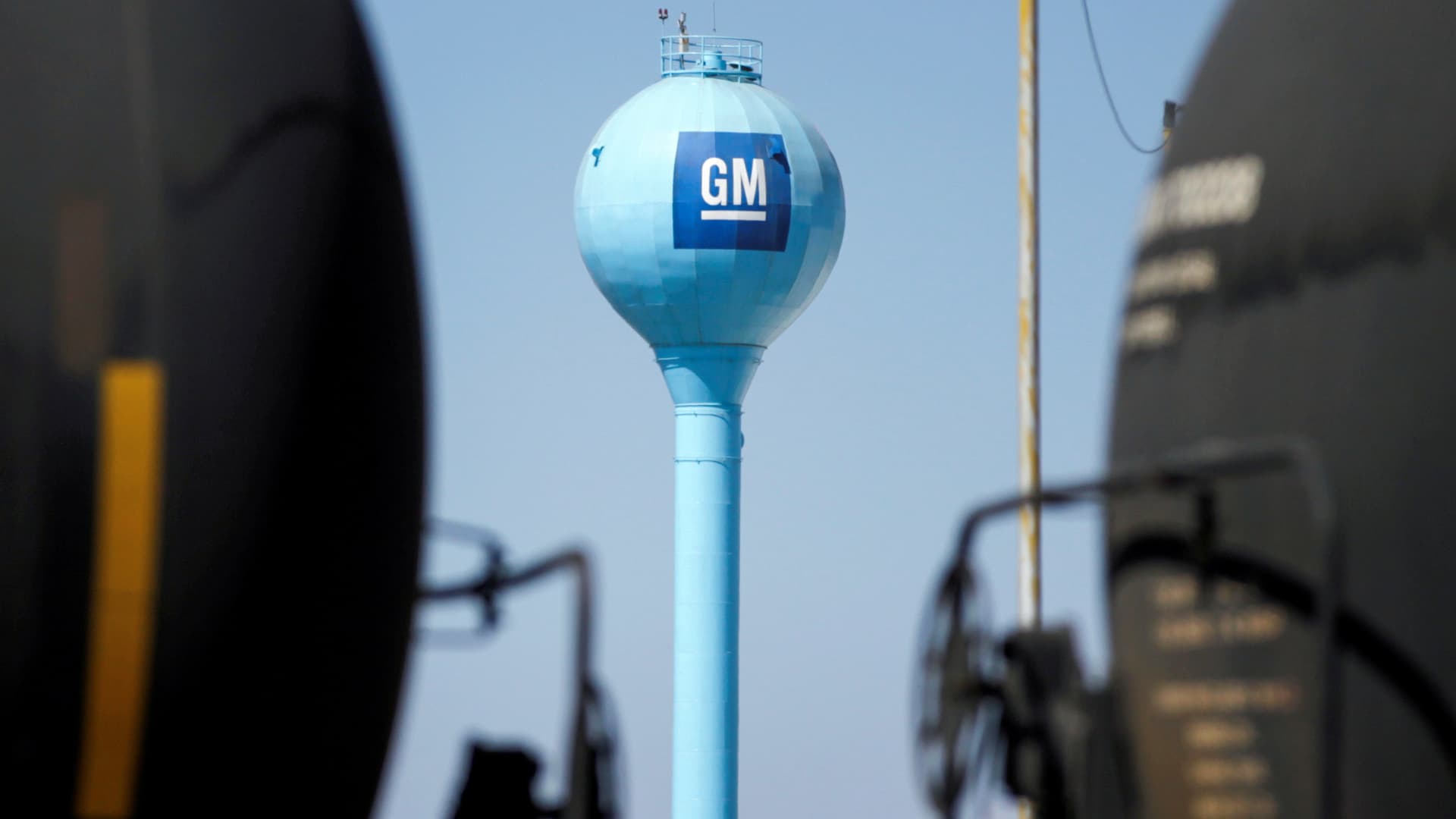Hollywood studio stocks briefly fall after Trump proposes foreign film tariff
Shares of Netflix, Disney, WBD, Paramount and Comcast fell after President Donald Trump proposed a tariff on films shot outside the U.S.

The famed Hollywood sign is viewed on September 25, 2023 in Los Angeles, California.
Mario Tama | Getty Images
Investors in Hollywood's top studios and streaming services were trying to make sense Monday of President Donald Trump's proposed 100% tariff on movies made overseas.
Shares of Netflix, Disney, Paramount and Warner Bros. Discovery briefly fell in early-morning trading, with Comcast-owned Universal also trading slightly down. Here's how those stock moves shook out before shares rebounded:
Netflix down as much as 4%Disney down as much as 3%WBD down as much as 5%Paramount down as much as 2%Comcast down as much as 1%Trump called tax incentives offered by foreign countries "a national security threat" in a post on Truth Social Sunday night. He said he was authorizing the Department of Commerce to impose a levy on all films produced abroad that are sent to the United States.
How Trump intends to implement these duties is unclear, as is exactly who is being targeted and who would foot that potential tariff bill.
Hollywood studios have long filmed movies overseas, either for tax benefits or to capture the natural setting of international locations. Some films are shot in multiple countries, with many studios having satellite production hubs around the globe.
"We think the large studios and distributors ... and various independent studios carry a significant amount of risk as they will have to lobby the Trump administration to set a reasonable standard for films that require live sets in foreign settings while otherwise moving productions stateside for studio-based scenes," Wedbush's Alicia Reese wrote in a note to investors Monday.
Reese estimates that 75% of Netflix's overall content is produced internationally, with foreign language content made internationally and a significant portion of its domestic product filmed in Canada and the U.K.
"Realistically, most of Netflix's content is filmed by third party studios, and the company has little control over where the vast majority of its content is produced," Reese said.
When Trump first instituted a 25% tariff on imports from Canada, a popular filming location for Hollywood movies and television shows, industry experts told CNBC that it wouldn't have a major impact on production.
After all, the majority of projects are shot digitally, and transporting the final product can be done online or with a data storage device. There isn't a physical good that exchanges hands in the same way as, say, toys or clothing that's made in another country.
"Tariffs typically apply to the import of 'goods,' so a tariff on DVD imports is easy to enforce and a tariff on intellectual property is nearly impossible to enforce," Reese wrote.
Questions are already swirling. What part of the production process would be hit with this duty? Would it apply only to movie projects or will TV shows filmed internationally also incur this levy? Are already completed projects exempt?
Additionally, as with the first round of tariff announcements earlier this year, industry experts worry about how these duties will impact relationships with other countries. Hollywood relies on international box office sales to recoup lofty film budgets. China has already closed its doors to Hollywood product. Other regions could retaliate and do the same.
Disclosure: Comcast is the parent company of NBCUniversal and CNBC.

 Troov
Troov 
































